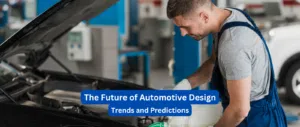The automotive industry has undergone remarkable transformations over the years, driven by relentless innovation and a pursuit of sustainable practices. In this comprehensive study, we delve into the evolution of automotive technology and explore the strides made toward creating a more sustainable automotive industry.
The Evolution of Automotive Technology has been a fascinating journey marked by continuous innovation and transformative breakthroughs. From the humble beginnings of the automobile in the late 19th century to the present era of electric and autonomous vehicles, the automotive industry has witnessed unparalleled advancements. The early days saw the advent of mass production techniques, propelling the Model T by Ford into automotive history. As the mid-20th century unfolded, innovations such as automatic transmissions and electronic control units elevated driving comfort and safety. The digital revolution of the late 20th century brought about a shift towards computerised engine control, paving the way for fuel efficiency and enhanced performance. In recent years, the industry’s focus on sustainability has driven the rise of electric vehicles, smart technologies, and eco-friendly manufacturing practices. The comprehensive study of automotive technology’s evolution underscores not only a rich history of engineering prowess but also a commitment to shaping a more sustainable and technologically advanced future.
Table of Contents
The Early Days of Automotive Technology
The journey of automotive technology began in the late 19th century with the invention of the automobile. The Model T by Ford revolutionized transportation, showcasing the power of mass production. Early vehicles were simple, relying on internal combustion engines and basic mechanical systems. As demand grew, so did the need for advancements.
The history of automotive technology is a testament to human ingenuity and the relentless pursuit of innovation in transportation. It all began in the late 19th century when the invention of the automobile revolutionized the way people moved. Pioneering figures like Karl Benz and Henry Ford played pivotal roles in establishing the foundations of the automotive industry. The early 20th century saw the standardization of mass production techniques, epitomized by Ford’s assembly line, making cars more accessible to the general public. As time progressed, advancements such as automatic transmissions, power steering, and electronic control units became integral components of modern vehicles, enhancing safety and driving comfort. The latter part of the 20th century ushered in the digital age, with the integration of computerized systems, fuel injection, and advancements in materials. In recent decades, the focus has shifted towards sustainable technologies, with electric vehicles, hybrids, and smart technologies reshaping the automotive landscape. The rich tapestry of automotive technology history reflects a continual evolution, from the horseless carriage to the sophisticated, interconnected vehicles of the 21st century.
Technological Advancements in the Mid-20th Century
In the mid-20th century, we have witnessed significant strides in automotive technology. Introducing automatic transmissions, power steering, and radial tires enhanced driving comfort and safety. The space race also contributed to innovations such as lightweight materials and improved aerodynamics, influencing car design. In the mid-20th century, automotive technology leapt forward with innovations like automatic transmissions, power steering, and enhanced safety features, transforming driving experiences.
The Digital Revolution
The latter part of the 20th century brought about the digital revolution, transforming the automotive landscape. Electronic Control Units (ECUs) became integral for managing engine performance, emissions, and safety features. The 1980s saw the advent of computerized engine control, paving the way for fuel injection systems and improved efficiency. The digital revolution in automotive technology during the late 20th century introduced electronic control units, computerized engine management, and fuel injection, revolutionizing vehicle efficiency, performance, and safety standards.
Sustainable Practices in the Automotive Industry
The Rise of Electric Vehicles (EVs):
In recent years, the automotive industry has experienced a paradigm shift towards sustainability, with a strong emphasis on electric vehicles (EVs). EVs are powered by electricity, reducing dependence on traditional fossil fuels and mitigating environmental impact. Companies like Tesla have spearheaded this transition, showcasing the potential of electric mobility.
Hybrid Technologies:
Hybrid vehicles, combining traditional internal combustion engines with electric propulsion, have gained popularity. These vehicles leverage the benefits of both worlds, providing improved fuel efficiency and reduced emissions. Toyota’s Prius, introduced in the early 2000s, played a pivotal role in popularizing hybrid technology.
Advancements in Fuel Cell Technology:
Fuel cell technology represents another avenue for sustainable automotive solutions. Hydrogen fuel cells convert hydrogen into electricity, emitting only water vapour as a byproduct. Automakers are investing in research and development to harness the potential of fuel cell vehicles for a cleaner and greener future.
Sustainable Materials and Manufacturing
Lightweight Materials:
The quest for sustainability extends beyond the vehicle’s power source to its materials. Lightweight materials, such as carbon fibre and aluminium, contribute to fuel efficiency by reducing overall vehicle weight. These materials also enhance performance and are recyclable, aligning with eco-friendly practices.
Eco-Friendly Manufacturing Processes:
Automakers are increasingly adopting environmentally friendly manufacturing processes. Water-based paints, recycled materials, and energy-efficient production facilities are becoming standard. Sustainable manufacturing practices not only reduce the environmental footprint but also align with consumer preferences for eco-conscious products.
Connectivity and Autonomous Driving
Smart Vehicles:
The integration of connectivity and Artificial Intelligence (AI) has given rise to smart vehicles. Advanced driver assistance systems (ADAS) enhance safety through features like lane-keeping assistance, adaptive cruise control, and automatic emergency braking. These technologies pave the way for fully autonomous vehicles, promising a future with safer and more efficient transportation.
Internet of Things (IoT) in Automotive:
The IoT has permeated the automotive sector, enabling real-time data exchange between vehicles and infrastructure. This connectivity facilitates traffic management, predictive maintenance, and optimized routing, contributing to a more efficient and sustainable transportation ecosystem.
Challenges and Future Outlook:
While the automotive industry has made significant strides in adopting sustainable practices and advancing technology, challenges persist. Infrastructure limitations for electric vehicles, concerns about the environmental impact of battery production, and the need for standardized regulations pose hurdles.
The future of automotive technology holds exciting possibilities. Continued research into alternative fuels, advancements in battery technology, and the evolution of autonomous driving systems are on the horizon. The industry’s commitment to sustainability is shaping a future where innovation and environmental responsibility go hand in hand.
The evolution of automotive technology reflects a journey marked by ingenuity, adaptation, and a commitment to sustainability. From the early days of the automobile to the present era of electric and autonomous vehicles, the industry has continually embraced change. As we move forward, the fusion of technology and sustainability promises a future where driving is not only efficient and safe but also environmentally responsible. The comprehensive study of automotive evolution underscores the industry’s determination to navigate challenges and steer toward a greener tomorrow.
More Informative Blogs:
Power Of Community Services Education
The Power Of Information Technology In Shaping A Better Future




